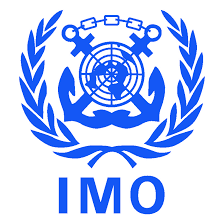The Philippines on April 24 and June 6 this year deposited instruments to accession to six maritime conventions with the International Maritime Organization (IMO), according to the Maritime Industry Authority (Marina).
Marina in a statement said the country’s accession to the IMO conventions highlights “our support to the safety of our Filipino seafarers and [protection of] the marine environment from the operation of ships.”
In a separate statement, the Department of Foreign Affairs said instruments to three of the six maritime conventions were handed last June 6 by Philippine Ambassador to the United Kingdom Antonio M. Lagdameo to IMO Secretary General Kitack Lim.
These are the International Convention for the Control and Management of Ships’ Ballast Water and Sediments, 2004 (BWM Convention); International Convention on the Control of Harmful Anti-fouling Systems in Ships, 2001 (AFS Convention); and Protocol of 1988 relating to the International Convention for the Safety of Life at Sea, 1974 (SOLAS Protocol 88).
The BWM Convention, adopted in 2004, prescribes regulations to control the transfer of potentially invasive species and harmful aquatic organisms found in ships’ ballast water, and requires all ships to manage their ballast water and sediments according to standard. The BWM Convention envisions an onboard ballast water treatment system installed on most ships. States party to the Convention need to ensure that ports and terminals have adequate facilities for receiving sediments.
Meanwhile, the AFS Convention prohibits the use of harmful substances and compounds in anti-fouling paints used on ships. Anti-fouling paints are used to coat the bottoms of ships to prevent algae and mollusks from attaching to the hull. Studies have shown that these harmful substances leach into the sea water and cause considerable damage and harm to the marine environment.
States party to the AFS Convention are required to prohibit or restrict the use of harmful anti-fouling systems on ships flying their flag, as well as ships not entitled to fly their flag but which operate under their authority and all ships that enter a port, shipyard, or offshore terminal of a country party to the convention.
The SOLAS Protocol 88 introduces a harmonized system of survey and certification for the SOLAS and Load Lines Conventions, which would enable the surveys, mandated by both Conventions, to be carried out at the same time.
In accordance with IMO regulations, these three IMO instruments will become effective in the Philippines three months from the date of deposit, or on September 6, 2018.
Last April 24, Permanent Representative of the Philippines to the IMO Gilberto Asuque also deposited instruments of accession to the Protocol of 1997 to Amend the International Convention for the Prevention of Pollution from Ships,1973 as modified by the Protocol of 1978 (MARPOL Annex VI); Protocol of 1978 Relating to SOLAS (on measures to further improve the safety of ships, particularly tankers); and Protocol of 1988 Relating to the International Convention on Load Lines, 1966 (Load Line Protocol 88).
MARPOL Annex VI, first adopted in 1997, limits the main air pollutants contained in ships’ exhaust gas, including sulfur oxides (SOx) and nitrous oxides (NOx), and prohibits deliberate emissions of ozone-depleting substances (ODS). MARPOL Annex VI also regulates shipboard incineration and the emissions of volatile organic compounds (VOC) from tankers.
SOLAS Protocol 1978 aims to update the safety standards of crude carriers and product carriers by requiring the specifications of radars and steering gear to enhance safety of navigation, while Load Line Protocol 88 prescribes the minimum reserve buoyancy and freeboard of ships to ensure their stability by preventing overloading.
These three IMO instruments become effective for the Philippines this July. – Roumina Pablo






PH being a maritime nation must spearhead the compliance to treaties under IMO.
Comments are closed.